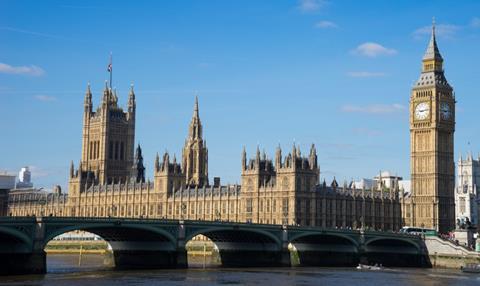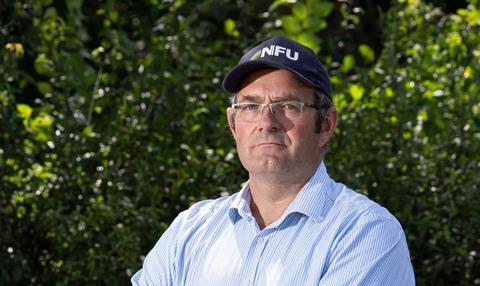Members of the meat sector have commented on the arrival of the new Labour Government following the results of the General Election.

Organisations have called for additional support to industry, as well as clarity on border controls and EU labelling.
Steve Reed OBE has been appointed Secretary of State for Environment, Food and Rural Affairs, having previously served as the Defra Shadow Secretary since September 2023.
CEO of the International Meat Trade Association (IMTA) Katie Doherty said: “IMTA is looking forward to meeting with new Government ministers in due course. We will be sending letters out to them as soon as they are in position to outline the urgent issues that members need addressing.
“We hope that clarity will be provided as soon as possible (and ahead of the summer parliamentary recess) on issues such as not for EU labelling and decisions taken as a matter of urgency to review the Common User Charge which is negatively impacting on SMEs since the introduction of veterinary controls on 30th April. As we set out in our manifesto we hope that the new Government will recognise the cruciality of two-way trade to the UK meat sector.
“The new Government will need to hit the ground running with the plethora of challenges facing the UK food industry but we look forward to engaging constructively to support the new Government where relevant.”
“We hope that the Government will recognise the cruciality of two-way trade to the UK meat sector.”
Spokesperson for the Association of Independent Meat Suppliers (AIMS), Tony Goodger, said: “The new Labour Government has promised to ‘kickstart the economy’ stating in their manifesto that they ‘will publish a trade strategy and use every lever available to get UK business the access it needs to international markets. This will promote the highest standards when it comes to food production’.
“It is essential that the meat and poultry processing industry have access to skilled and affordable labour, and we will continue as before to make the case with the Migration Advisory Committee and the Home Office. We also look forward to working with the new ministerial teams and their officials at Defra, DBT and FCO as we note that the Government’s ambitions include ‘…striking new free trade agreements’ and to ‘negotiate standalone sector deals…’.”
“It is essential that the new Government fully recognise that the food industry and its supply chains sit within the UK’s critical national infrastructure.”
Goodger continued: “AIMS’ number one priority with respect to overseas trade is to restore frictionless movement of POAO products into mainland Europe which we know can be easily achieved by establishing a veterinary agreement with the EU. It is also essential that the new Government fully recognise that the food industry and it’s supply chains sit within the UK’s critical national infrastructure.”
Nick Allen, CEO of the British Meat Processors Association (BMPA), stated: “Towards the end of the last parliament, it was frustratingly clear that Government had stopped listening to and engaging with companies operating in the strategically important business of providing food for the nation. British food security had been overlooked by policy makers who were simply not taking a joined-up approach to immigration, skills, labour, trade barriers and a plethora or other issues that, together, are preventing the industry from functioning optimally.
“In preparation for a new Government, BMPA has already been engaging with the Labour party to raise the issues our industry is most sensitive to, and over the next few days, we’ll find out who will be the people chosen to take on the ministries that have a direct bearing on meat processing. At that point, BMPA is ready to present a vision for the future of the British meat industry and the part our new political leaders need to play in Britain’s future food security.
“What this new Government does from now will form their legacy, and it’s our intention to help ensure that part of that legacy is a secure domestic food supply chain that can withstand the geopolitical and climate challenges of the future.”
“NCB hopes the new Government will truly support the butchery industry and the large and small businesses within it.”
Eleanor O’Brien, managing director at National Craft Butchers (NCB), said: “NCB hopes the new Government will truly support the butchery industry and the large and small businesses within it. We want a commitment to review regulations so that smaller businesses and abattoirs do not continue to be disproportionately affected.
“We want lower business rates for smaller retailers and we want continued investment in local communities and high streets, removing barriers such as the availability and cost of parking.”

NFU president Tom Bradshaw said: “This is a reset moment for British agriculture as we work with Sir Keir Starmer’s new Government to drive our sector forwards and grow.
“Labour’s manifesto recognised that food security is national security, but it is business confidence which forms the foundation of this. With British farmers and growers ambitious for the future, what they – and the public – need are practical policies that revitalise farm business confidence and deliver on our shared mission of food security.
“In a cost-of-living ‘crisis’, our ability to provide affordable, climate friendly and high welfare food will be critical for families across the country, as well as underpinning the UK’s largest manufacturing sector, food and drink, and stimulating economic growth.”
Bradshaw continued: “That’s why, for Britain’s farmers, the number one priority for the new Labour Government must be to set an increased multi-year agriculture budget for the duration of the next Parliament. This is about investing in the future of British farming – in homegrown food, in the environment and in renewable energy.
“In the coming days and weeks, we will be building on our strong engagement with Labour ministers to date to discuss essential policy solutions on key issues for our members. There are a number of policies within Labour’s manifesto which we will want to see actioned, for example ensuring the new Environmental Land Management Schemes work for all farm businesses, setting core standards for food imports and legislation to boost public procurement.
“At the same time, there are various issues that need greater recognition if the sector is to unlock its potential for growth, such as a fit for purpose Seasonal Workers Scheme, effective import controls, supply chain fairness, investment in infrastructure and flexibility in planning.”
“For Britain’s farmers, the number one priority for the new Labour Government must be to set an increased multi-year agriculture budget for the duration of the next Parliament.”
He said: “Our members will also want to see the new Government’s commitment to food security by being alert to the risk and impact of disease, particularly bovine TB, as we work towards the Government’s target to eradicate this terrible disease by 2038. With the latest science showing a 56% decline in TB outbreaks, continuing with an effective and comprehensive eradication plan, which is based on scientific evidence, is essential.
“Working together on these immediate priorities is a win-win. The public will get more of the British food they know and love, farmers and growers will have the confidence to build profitable, sustainable, resilient businesses – supporting economic growth and environmental delivery – and this new Government will help to secure a safe supply of homegrown food in an increasingly volatile and uncertain world.”
Results
At the time of writing, Labour has gained 211 seats as the Conservative Party lost 251. Liberal Democrats gained 64 seats, but SNP lost 39.
- Labour: 412
- Conservative: 121
- Liberal Democrats: 72
- Scottish National Party: 9
- Sinn Fein: 7
- Independent: 6
- Democratic Unionist Party: 5
- Reform: 5
- Plaid Cymru: 4















